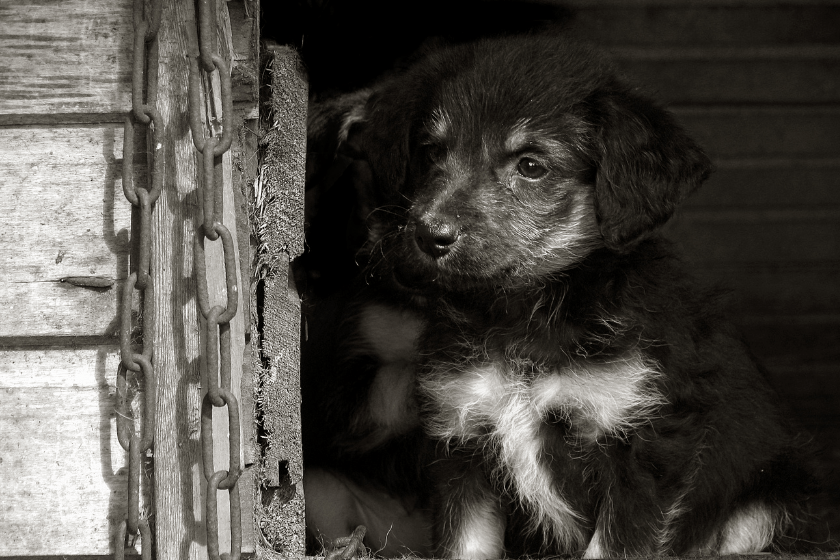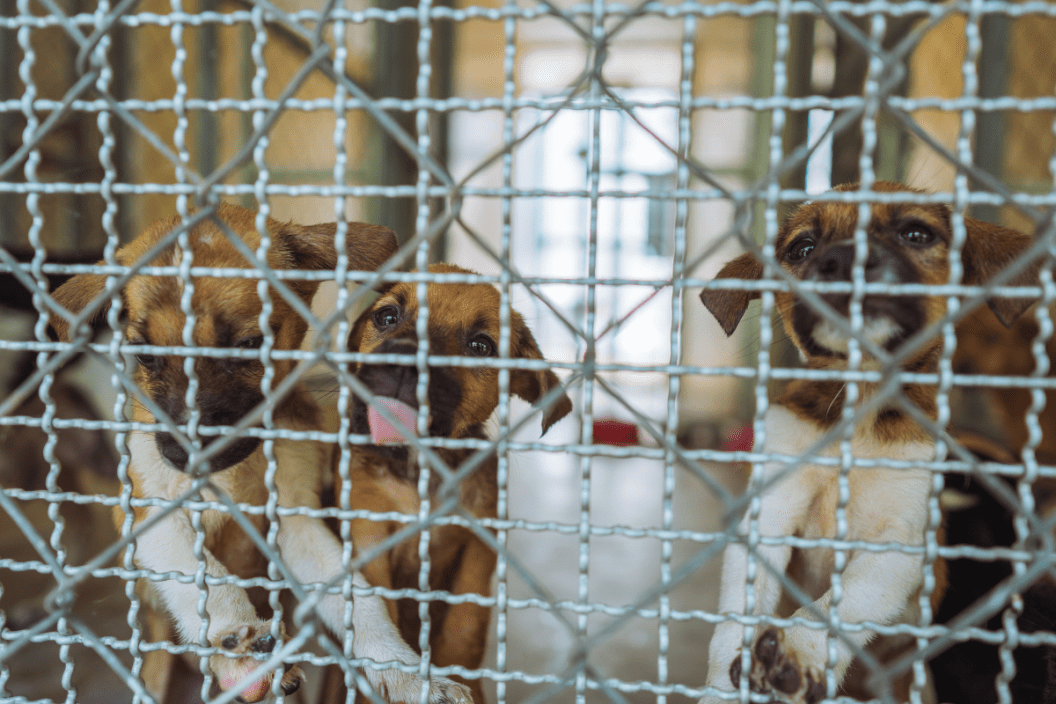Unfortunately, puppies can come from horrific circumstances. Thankfully, there are organizations fighting puppy mills each and every day.
Puppy mills are commercial breeders who care very little about the overall well-being of their dogs. The moms are often overbred and mistreated, pushed to litter as many puppies as possible little chance for recovery and even less veterinary care. Puppies that come from these mills are mistreated even more; they tend to be malnourished and develop a wide range of sicknesses. Puppy mill dogs are often funneled and sold to various pet stores, which yields a pretty high profit margin for both parties. Unfortunately, the puppy mill industry cares more about their bottom line than the actual well-being of these companion animals.
Thankfully, many animal rescue organizations are fighting against puppy mills every day, hoping to bring an end, not only to animal cruelty, but to puppy mills themselves. Rescue groups often save puppies from these breeding facilities, nurse them back to health, and adopt them through animal shelters and rescue facilities. Wide Open Pets spoke with two such organizations fighting for animal welfare and a better life for man's best friend.
Animal Welfare Act

RELATED: Puppy Protection Act: Fighting for Better Breeding Conditions
First passed in 1966, The Animal Welfare Act was created to establish a minimum level of care for animals in research. The bill "applies to animal carriers, handlers, dealers, breeders, and exhibitors in addition to research laboratories, and sets minimum standards of care that must be provided for animals—including housing, handling, sanitation, food, water, veterinary care, and protection from weather extremes."
The act covers dogs, cats, primates, rabbits, hamsters, and guinea pigs. Over the years, the act has seen many updates to protect animals further. For example, in 1985, it was updated to give the USDA authority over animal welfare enforcement if pets were found to be without adequate food, water, and care. In addition, the 2008 update significantly raised the fines for violating the law — They rose from $2,500 to $10,000 per animal, per individual violation, per day.
PETA

PETA works to stop puppy mills by investigating dog breeding facilities. Rachel Bellis, a spokesperson for PETA, said that many of these dogs are living in crude, unsanitary conditions; they are often in wire cages or chained to trees. According to Bellis, PETA recently conducted an undercover investigation into a Jack Russell Terrier breeder in Lake City, Michigan. The breeder had a long-list of complaints against him: In 2008, 85 dogs were taken from his kennel due to poor conditions; in 2013, 165 dogs were taken; in 2021, the dog breeder was operating yet again, and the puppies and mother dogs were living in deplorable conditions. PETA went undercover, eventually exposing the atrocities happening at this breeder's kennels.
PETA conducts many of these investigations as a way to shut down puppy mills. Living in horrible conditions — lacking proper food, water, care and basic comforts — and with little-to-no socialization, female dogs are bred continuously to reach the maximum number of puppies she can until retirement. However, "retirement" for many female dogs means getting shipped off to shelters, or worse, killed. Their entire lives have only one purpose: create more puppies to increase the breeder's profit margins before being thrown out.
PETA firmly believes that advocacy is the best way to fight and prevent puppy mills. Bellis pointed out that the best way to stop the sale of puppies from mills in pet stores is to proactively contact local and state representatives. Many cities are passing ordinances on the local level to ban the sale of dogs in pet stores, but state laws can also be designed to outlaw the use of puppy mills as a source of pet store animals. Another way to reduce the number of strays on the street is PETA's No Birth Nation Initiative, which calls for cities to pass ordinances requiring permits in order for licensed breeders to operate, though those litters would not be available for retail sale.
The Puppy Mill Project

Cari Meyers from The Puppy Mill Project discussed via email the importance for people to know about puppy mills and the cruelty that goes on there. Many people who go to pet stores or to breeders for dogs need to be aware of the conditions that the dogs are raised in.
"These dogs are kept in cages, or worse, 24 hours a day with no socialization, no vetting, inadequate food, no grooming, are the females are bred every time they come into heat, which is every 6 months. There is continual inbreeding, and most of these poor breeding dogs that are creating these beautiful, often sick puppies, are killed when they can no longer breed. It is truly a horror story."
Meyers points out that the pet industry is a "consumer-driven industry and if the buying stops, then the demand stops, and the supply stops."
If you're researching breeders for your next pet, Meyers suggests watching for possible red flags that you stumbled upon a puppy mill, as opposed to finding a responsible breeder.
"If a breeder will not let you see where the dogs live or allow you on the property, that is a red flag," Meyers said. "If they will ship the puppy to you without meeting you or want to meet you somewhere other than where the dogs live, red flag." Meyers added breeders with multiple dog breeds, a huge number of dogs, and conducts a ton of online or social media advertising, those are more red flags.
If you suspect your breeder runs a puppy mill, alert your local authorities. They can investigate the breeder and their property and impose fines and, in some cases, confiscate the dogs.
Other Organizations Fighting Puppy Mills

Many other non-profit organizations are invested in stopping puppy mills. The organizations focus on outreach. spay and neuter programs, and legislation. If you are looking for more ways to get involved, take a look at one of the following organizations:
- Hearts United For Animals
- American Society For the Prevention of Cruelty to Animals, ASPCA
- The Humane Society of the United States
- Bailing Out Benji
Both Cari Meyers and Rachel Bellis agree that the best way to get involved is to reach out to your legislators and assist in creating bills to put an end to puppy sales in pet stores at the community level. In particular, Meyers said that potential pet owners can also help simply by doing "their homework when it is time to get a new furry friend."
Even better: Adopt instead of shopping! Bellis pointed out that so many great dogs are looking for homes in local shelters; Meyers agreed. Many shelter dogs are purebred, if that is really important to a pet owner, and there are countless healthy, young pups sitting in shelters just waiting to be your companion.
Would you get involved with fighting puppy mills? Tell us on our Wide Open Pets Facebook page.
READ MORE: Pet Store Adoptions & The Danger of Puppy Mills




